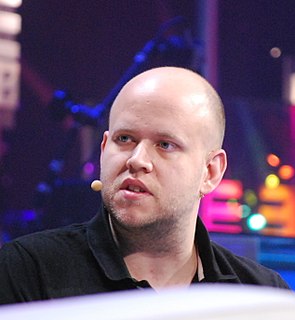A Quote by Jenna Wortham
Spotify, Tidal, and even YouTube, to a degree, are vast and rich troves of music, but they primarily function as search engines organized by algorithms. You typically have to know what you're looking for in order to find it.
Related Quotes
Competitors argue that Google rigs its search algorithms to demote listings for competing search engines. Many of the allegations of demotion come generally from sites of pretty questionable quality, such as Nextag and Foundem. Some of Google's primary competitors in 'specialized search' clearly place well in search results - Amazon and Yelp.
Vertical search engines that match your business, service or products with a target market offer you a higher conversion rate than traditional search engines. Because they have already qualified their interest by coming to a search engine with a specific focus, searchers will be more receptive to targeted advertising.
There are half a billion people that listen to music online and the vast majority are doing so illegally. But if we bring those people over to the legal side and Spotify, what is going to happen is we are going to double the music industry and that will lead to more artists creating great new music.






























